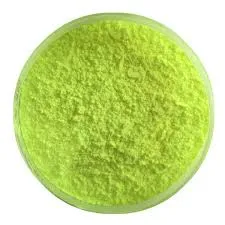Innovations in Sludge Treatment Chemicals Enhancing Efficiency and Sustainability
The treatment of sludge—organic and inorganic materials that accumulate during wastewater treatment processes—presents significant challenges for municipalities and industries alike
. With the increasing focus on environmental sustainability and compliance with stringent regulations, the development and application of innovative sludge treatment chemicals have become paramount. These chemicals play a critical role in enhancing the efficiency of sludge dewatering, reducing the volume of waste, and improving the overall quality of the treated effluent.One of the primary goals of sludge treatment is to reduce its volume for further disposal or use. Conventional methods often involve the addition of coagulants and flocculants, which help to aggregate the solid particles in sludge, making it easier to remove water. Traditional chemicals such as alum and ferric chloride have been widely used in this context. However, they can have drawbacks including the generation of residual sludge and the potential for high operational costs. As such, the industry is witnessing a shift toward more sustainable and effective alternatives.
Recent advancements in polymer technology have led to the development of new types of flocculants that improve sludge dewatering processes. For instance, bio-based polymers derived from renewable resources are gaining popularity. These bio-flocculants not only enhance the flocculation process but also mitigate the environmental impacts associated with synthetic polymers. Their biodegradability and non-toxic nature make them preferable for eco-conscious operations.
In addition to improving dewatering performance, the use of advanced chemical additives in sludge treatment can significantly enhance the stability and overall quality of the treated sludge. One such innovative approach is the application of chemicals that promote anaerobic digestion, a process where microorganisms break down organic matter in the absence of oxygen. By adding specific enzymes or nutrient supplements to the sludge, operators can increase biogas production and reduce the volume of the sludge that requires disposal. This not only improves sustainability but also enables facilities to generate renewable energy from waste.
sludge treatment chemicals

Furthermore, the use of oxidizing agents, such as ozone or hydrogen peroxide, has emerged as a promising technique for sludge treatment. These chemicals can effectively eliminate pathogens and organic pollutants in the sludge, ensuring that the treated effluent meets health and safety standards before discharge. This is particularly important in regions where stringent regulations on effluent quality are in place.
The continuous pursuit of reducing operational costs and improving treatment efficacy has also spurred the exploration of nanotechnology in sludge treatment chemicals. Nanomaterials can exhibit exceptional properties that facilitate the removal of contaminants from the sludge. For instance, nanoparticles can be engineered to bind with specific pollutants, making them easier to extract during the treatment process. While this area of research is still developing, the potential for nanotechnology to revolutionize sludge treatment is significant.
Moreover, advancements in smart sensor technology integrated with chemical treatment processes offer a promising future for sludge management. These sensors can monitor the sludge characteristics in real time, allowing for the precise dosing of chemicals based on the current conditions. This not only optimizes the chemical usage but also minimizes the environmental impact associated with over-dosing or under-dosing treatments.
In conclusion, the field of sludge treatment chemicals is undergoing a transformative phase characterized by the pursuit of sustainability and efficiency. Innovations such as bio-based flocculants, enhancements in anaerobic digestion, oxidizing agents, nanotechnology, and smart monitoring systems are reshaping how municipalities and industries manage sludge. As research and development continue to push the boundaries, the future of sludge treatment looks promising, with the potential to contribute to a cleaner and more sustainable environment. By adopting these advanced chemical solutions, stakeholders can not only comply with regulations but also embrace a circular economy approach, turning waste into valuable resources.

